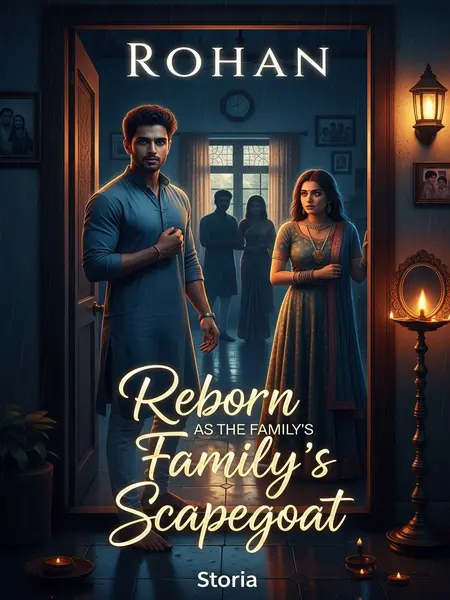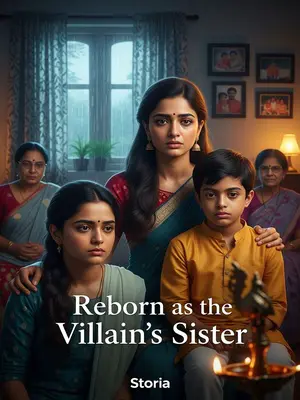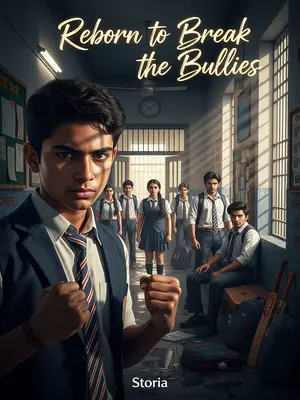Chapter 7: The Last Stand
I pulled out the photos I took in the neighbouring state on my phone.
I scrolled through the images, making sure the time and location stamps were clear. The bustling station, city skyline, busy platform—evidence of my alibi.
"I was in the neighbouring state at the time. Even if I came back, it would have taken time—I couldn't have made it."
My voice was steady, my gaze unwavering. My family stared at me, trying to find a crack in my story, but there was none.
"Then why didn't you buy a flight ticket? At a time like this, what's a little money?" my father demanded.
His voice was harsh, tinged with old resentments. I saw the flicker of shame in his eyes, quickly masked by anger.
My face turned cold. "There's only one flight from the neighbouring city here each day, and it's at night."
I met his gaze, refusing to back down. The tension in the room was thick, heavy with unsaid words.
"Kya main helicopter bulwa loon kya? Sab kuch mujhse hi hoga?"
A small, bitter laugh escaped me. The absurdity of their expectations never ceased to amaze me.
My parents' faces froze.
For the first time, they had no answer. The silence stretched, uncomfortable and accusing.
My Chacha ji and Chachi ji's sobbing finally stopped as well.
They exchanged glances, uncertain and wary. The room felt smaller, the walls closing in.
When the doctor came to check, he said the surgery had been very successful.
He smiled kindly, offering words of encouragement. "Patient ki halat ab theek hai. Kuch din aur ruk jayenge toh discharge kar sakte hain."
After staying for a while and recovering well, he could be discharged.
His words brought a small measure of relief. My family relaxed, if only for a moment.
But my Chacha ji and Chachi ji were worried about the medical bills.
They whispered together in the corridor, counting crumpled notes and worrying aloud about how to pay the hospital.
They discussed it and decided to leave the hospital two or three days early.
They argued with the billing staff, insisting they could 'recover better at home.' The nurses rolled their eyes but said nothing.
But after discharge, where to live became a problem.
The question hung in the air. Chacha ji scratched his head, Chachi ji clutched her purse tighter. Amit stared at the ceiling, refusing to look at anyone.
They had no house in the city, and my cousin refused to go back to the hometown.
"Wahan toh sab log hansenge," he muttered. The shame of returning home empty-handed was too much.
So, everyone in the room looked at me.
The silence was heavy, accusatory. My mother cleared her throat, my father coughed. All eyes turned to me.
I put on a confused face. "What is it?"
I feigned innocence, refusing to make things easy for them. My Chacha ji looked away, embarrassed.
My Chacha ji looked at my father.
My father avoided his gaze, pretending to be lost in thought. The tension was palpable.
My father opened his mouth to say something, but then closed it again.
Even he couldn't muster the courage to ask outright. The burden was always passed on, never owned.
My Chacha ji then looked at my Chachi ji.
Chachi ji bit her lip, her hands twisting her dupatta nervously. She seemed on the verge of tears. Then, glancing at my phone and nudging Chacha ji with her elbow, she summoned her courage.
My Chachi ji hesitated, then looked at me.
Finally, she spoke, her voice small and pleading.
"Um, Rohan, didn't you, uh, buy a new flat?"
She looked at me with hopeful eyes, as if willing me to say yes.
"Otherwise, let your brother stay at your place for now?"
The old request, repackaged as a favour. I smiled inwardly at the familiarity.
"Don't worry, he won't stay long."
A promise she had no intention of keeping. I nodded, waiting to see what would happen next.
"After your Chacha ji and I go back and arrange things at home, we'll come right over."
Another empty assurance. I wondered if they even believed it themselves.
Although my parents didn't say anything, they both looked at me approvingly.
Their eyes said it all: this was the right thing to do, the only thing a 'good son' would do.
As if they already knew I would agree, they turned to my cousin and said, "Amit, stay at Rohan's house for now. With Rohan taking care of you, we can rest assured."
The decision was made, as always, without my input. My cousin grunted, already settling into the role of permanent guest.
My mother smiled and said, "Yes, Rohan's girlfriend is at home too. From now on, let her cook nourishing soup for you every day. Let Amit take a month's leave first, and we'll talk about everything after you recover."
Her smile was saccharine sweet, but her eyes warned me not to object. My girlfriend’s fate, apparently, was now to be Amit’s personal caretaker. The sacrifices of women in Indian households, as always, went unremarked, unthanked.
"Yes, brothers should help each other," my Chacha ji said with satisfaction.
His tone was final, brooking no argument. The family drama had reset itself, the old roles re-assigned. Only I knew how the story really ended—but this time, I was ready.
But this time, I had my own plans—and nobody, not even blood, would rewrite my story.












